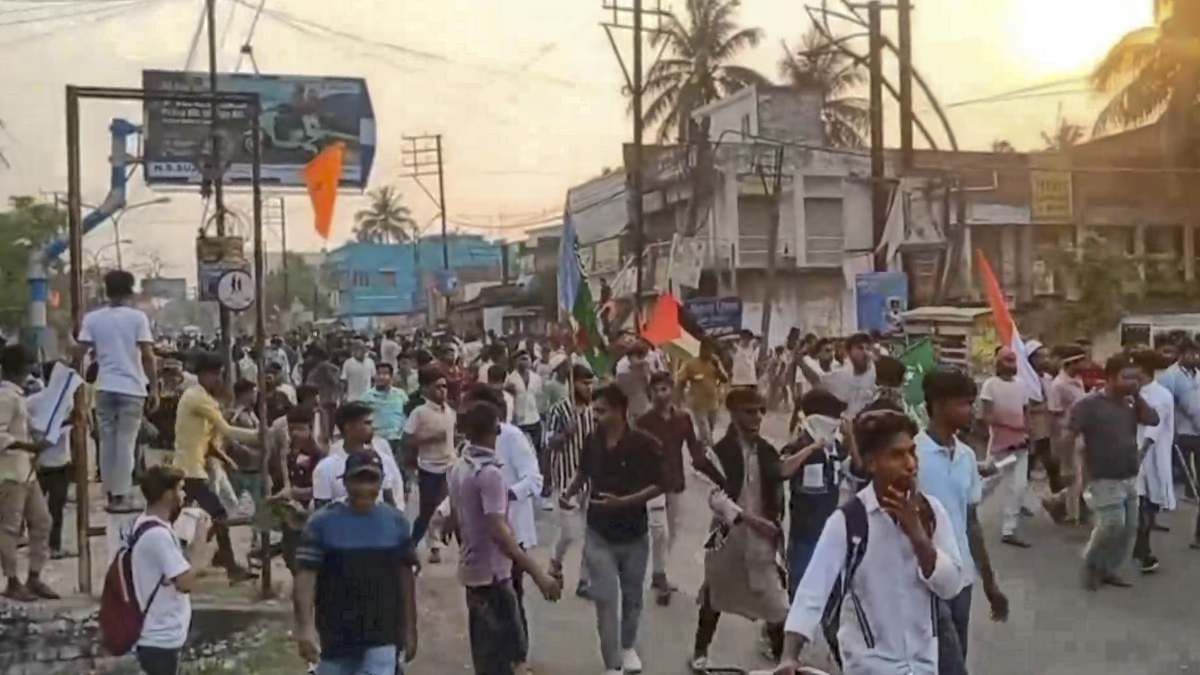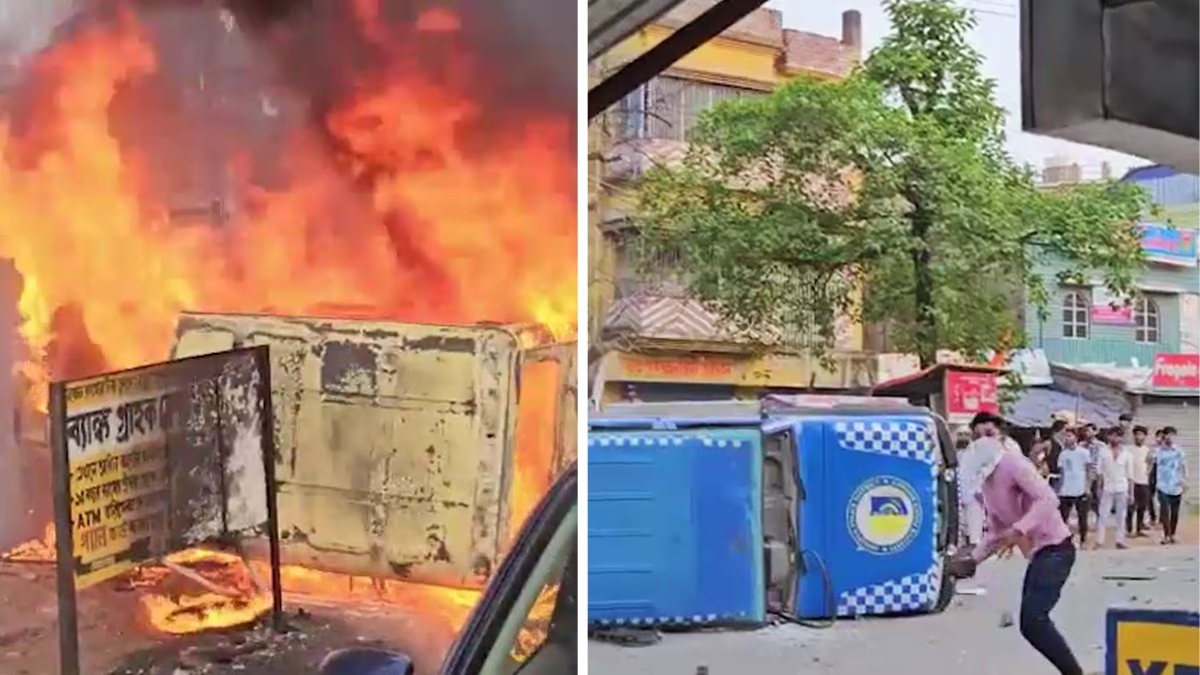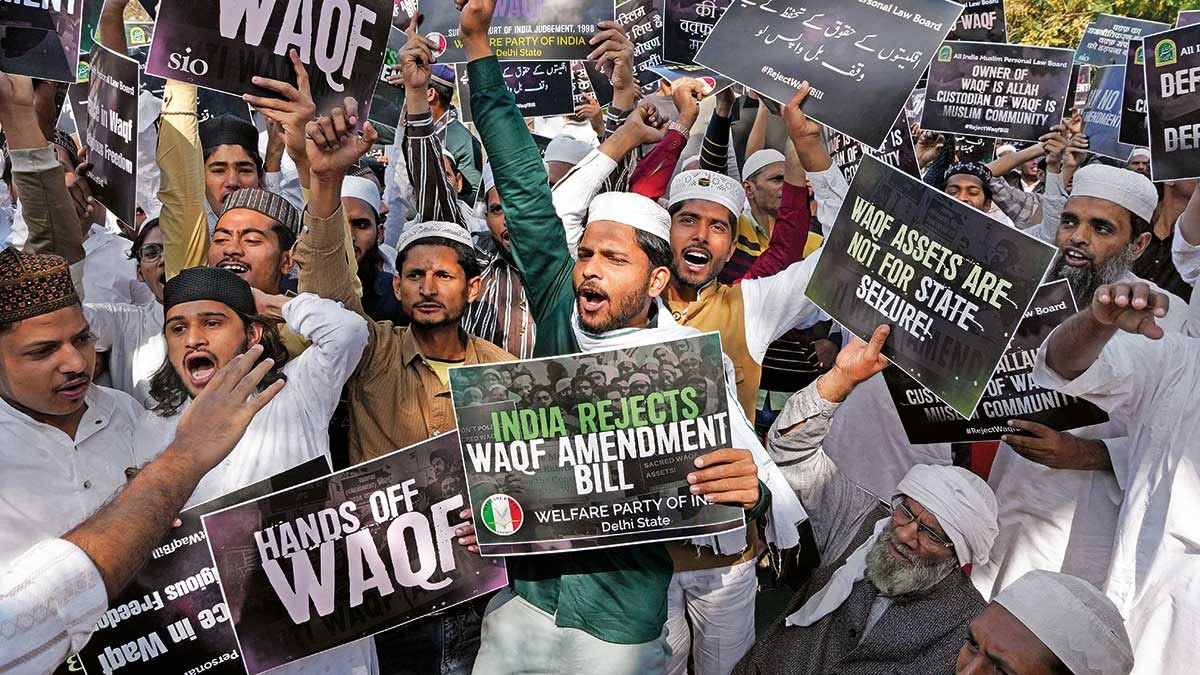The protest against the Waqf (Amendment) Act in Murshidabad district of West Bengal turned violent on Tuesday. Thousands gathered in Jangipur demanding the repeal of the controversial bill. The protest soon escalated, prompting the police to use baton charges and tear gas. Many police vehicles were vandalized and set on fire during the chaos.
How Did The Violence Begin?
According to police sources, the rally against the Waqf bill was organized at PWD Ground, Jangipur by multiple organizations. People flocked from different sections of Murshidabad. Simultaneously, Ram Navami processions were being held, stretching the police thin with fewer deployed at the PWD Ground.
During this time, some protestors blocked the road near the national highway. As police attempted to clear them, a person fell, sparking rumors that he was seriously injured or dead, which inflamed the crowd. Stones were thrown at the police, and two police vehicles were set on fire while other vehicles along the road were damaged.

Source: aajtak
Section 163 Imposed, Internet Services Suspended
As the situation worsened, additional police forces were called from other areas. Tear gas and baton charges were used to disperse the protestors. After hours of efforts, the situation was brought under control, although the national highway remained blocked for hours. Given the severity, the administration imposed Section 163 of the Indian National Security Act (BNSA) in Raghunathganj and Suti areas of Murshidabad, suspending internet services temporarily to curb the spread of rumors.
BJP Targets TMC
State minister and Jamiat Ulema-e-Hind state president Siddiqullah Chowdhury condemned the police action stating, "Even under Left rule, such use of force against minorities never happened. If violence occurred, action should be taken, but a baton charge on a peaceful rally isn't right."
Meanwhile, BJP launched a scathing attack on the ruling Trinamool Congress. BJP state president Sukanta Majumdar wrote on X (formerly Twitter), "Under Mamata Banerjee's rule, Bengal is bleeding. It's disgraceful to see police vehicles being torched and public property damaged by a particular community, yet the Chief Minister remains silent."

Source: aajtak
What is the Waqf (Amendment) Law?
The Waqf (Amendment) Act has recently been passed by both Houses of Parliament and signed into law by the President. Its aim is to streamline the management of Waqf properties donated by Muslims for religious or charitable purposes. It seeks to safeguard heritage sites, enhance transparency in property management, improve coordination between Waqf boards and local authorities, and protect stakeholder rights, while promoting broader social welfare initiatives.
Center Enforces Waqf Law
The center officially implemented the Waqf law on Tuesday, issuing a gazette notification. Consequently, the Waqf Act, 1995 is now renamed as the Unified Waqf Management, Empowerment, Efficiency, and Development (UMEED) Act, 1995. However, several Muslim organizations and opposition leaders oppose the legislation. To date, six petitions against the Waqf law have been filed in the Supreme Court, demanding prompt hearings. The Court has agreed to hear these petitions challenging the constitutional validity of the Waqf law, yet no hearing date is set.




